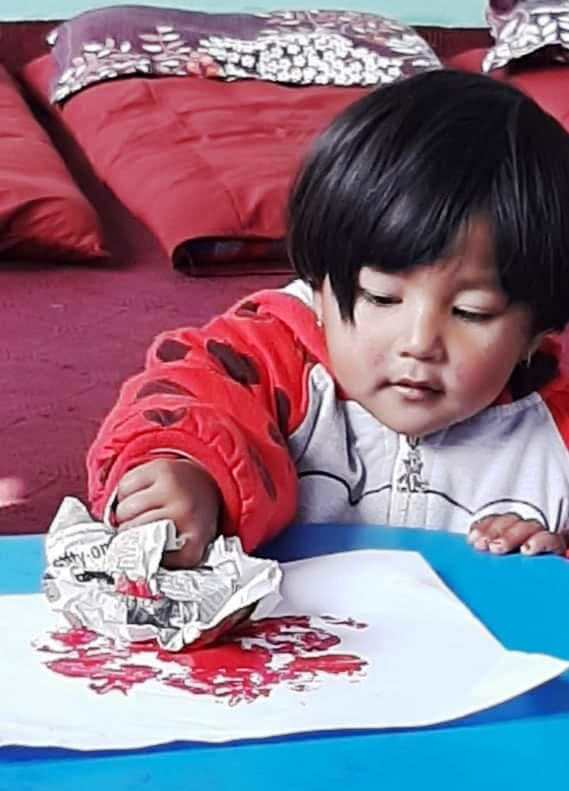The Montessori method of education is a type of educational method that involves children’s natural interests and activities rather than formal teaching methods. A Montessori classroom places an emphasis on hands-on learning and developing real-world skills. It emphasizes independence and it views children as naturally eager for knowledge and capable of initiating learning in a sufficiently supportive and well-prepared learning environment. It discourages some conventional measures of achievement, such as grades and tests.
The method was started in the early 20th century by Italian physician Maria Montessori, who developed her theories through scientific experimentation with her students; the method has since been used in many parts of the world.
Montessori education is based on a model of human development. This educational style operates abiding by two beliefs: that psychological self-construction in children and developing adults occurs through environmental interactions and those children (especially under the age of six) have an innate path of psychological development. Based on her observations, Montessori believed that children who are at liberty to choose and act freely within an environment prepared according to her model would act spontaneously for optimal development.

At We Kids School, our children are encouraged to explore at their own pace, to make choice and discoveries and to develop a lifelong love for learning.
Montessori education involves free activity within a “prepared environment”, meaning an educational environment tailored to basic human characteristics, to the specific characteristics of children at different ages, and to the individual personalities of each child. The function of the environment is to help and allow the child to develop independence in all areas according to their inner psychological directives. In addition to offering access to the Montessori materials appropriate to the age of the children, the environment should exhibit the following characteristics:
Principles of Montessori education.

1. Play is work
We should take the play very seriously as it is the way the child expresses himself.
Maria Montessori believed that playing is the ultimate way of learning and that children have a natural desire for knowledge that should be supported through the right tools.
“Play is the work of the child.” – Maria Montessori
2. Prepared environment
The prepared environment is an essential part of the Montessori method. It should be an environment of beauty, where children can move freely and act independently.
The Montessori environment should also be structured and have the order. It may seem counter-intuitive to the “freedom of movement” but the truth is – toddlers love order and routine. It helps them to navigate the world they live in.
3. Independence
Montessori education leads to independence. It encourages exploration and teaches toddlers to take responsibility for themselves, their belongings, and the environment. The Montessori schedule often includes practical activities like sweeping or personal care.
The golden rule of the Montessori approach is:
“Never help a child with a task at which he feels he can succeed.”
– Maria Montessori
4. Hands-on learning
Children learn through experience. From birth to the age of 6, the child is able to learn new things effortlessly and unconsciously, just by being in the right environment and having the opportunities to explore.
Maria Montessori called this concept the absorbent mind. It means the child is able to “absorb” new information like a sponge.
5. Observation
Raising children in the Montessori philosophy means observing them carefully and noticing what they are interested in.
There are certain periods – called sensitive periods – when the child is very interested in one kind of activity. It can be climbing, transporting things, focus on small details or language.
By observing the children, we can provide appropriate activities and create an environment that will support the development of the skill they are currently focused on.
6. Freedom within limits
Freedom doesn’t mean children can do whatever they want. It means we give them the opportunity to choose freely from the options we approved and that are good for them – whether it’s the activity they want to engage in or the dress they want to wear.
Montessori teachers and parents are guides (or, as Maria Montessori used to say, gardeners). We can provide the right conditions and point in the right direction, but we show respect to the way our children decide to go.
7. Respect
The Montessori method is about mutual respect between the child and the parent.
It also means that we understand that each child is a unique individual with his or her own needs, capabilities, and way of learning.
